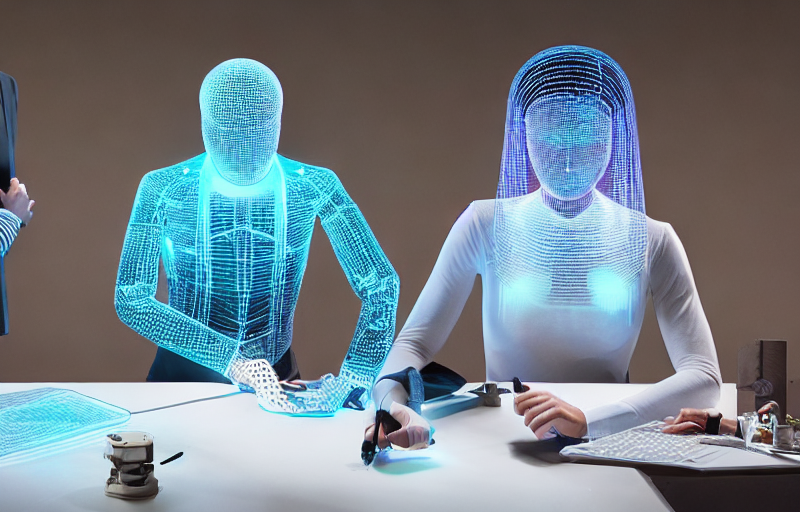Emergence of New Business Models in AI-Generated Content: The Changing Landscape of Intellectual Property Law
The rise of AI-generated content is transforming the creative industries, challenging traditional notions of ownership and authorship in intellectual property law.

Emergence of New Business Models in AI-Generated Content: The Changing Landscape of Intellectual Property Law
The Rise of AI-Generated Content
AI-generated content has become increasingly prevalent in recent years, with applications ranging from language translation tools to music composition software. The latest advancements in machine learning algorithms have enabled AI systems to generate high-quality content that is indistinguishable from human-created work. This has led to a significant shift in the way we approach creative endeavors, as individuals and organizations begin to rely on AI-generated content to drive their businesses forward.
The Impact on Intellectual Property Law
The emergence of AI-generated content has significant implications for intellectual property law. In traditional IP law, creators are entitled to exclusive rights over their original works, including the right to reproduce, distribute, and display them. However, with AI-generated content, questions arise regarding ownership and authorship.
New Business Models Emerge
In response to these challenges, new business models have begun to emerge that capitalize on the benefits of AI-generated content. Some of the most notable examples include:
- Subscription-based services: Companies like Medium and Substack offer subscription-based platforms where writers can generate content using AI tools, while readers pay a fee for access.
- Content-as-a-Service (CaaS): CaaS platforms provide users with access to pre-built AI-generated content templates that can be customized and monetized by creators.
- Licensing models: Companies like Getty Images are exploring licensing models that allow users to purchase the rights to use AI-generated images, rather than relying on traditional stock photography.
The Future of IP Law
As AI-generated content continues to evolve, it is likely that IP law will undergo significant changes. Some possible scenarios include:
- New forms of ownership: As AI systems become increasingly autonomous, it may be necessary to redefine traditional notions of ownership and authorship.
- Hybrid models: The future of IP law may involve hybrid models that combine human creativity with AI-generated content.
- Increased regulation: Governments and regulatory bodies may need to develop new laws and guidelines to address the challenges posed by AI-generated content.
Conclusion
The emergence of AI-generated content has significant implications for intellectual property law. As businesses and individuals begin to rely on these tools to drive their creative endeavors, it is essential that we develop innovative business models and regulatory frameworks that can adapt to this changing landscape. By understanding the impact of AI-generated content on IP law, we can unlock new opportunities for creators and innovators, while also ensuring that traditional rights and interests are protected.
Additional Resources
For further reading on this topic, please see:
- "The Future of Intellectual Property" by McKinsey & Company
- "AI-Generated Content: A New Era in Creative Industries" by The Verge
- "Intellectual Property and Artificial Intelligence: A Review of the Current State of the Law" by Harvard Journal of Law & Technology